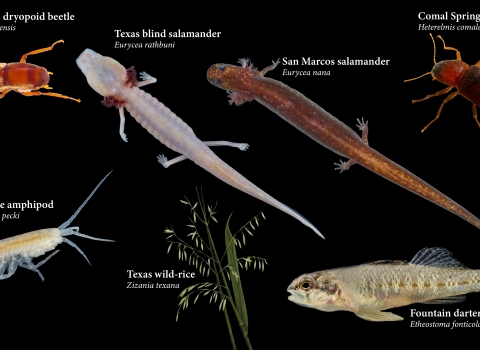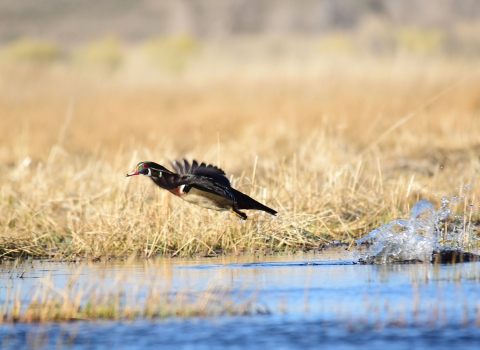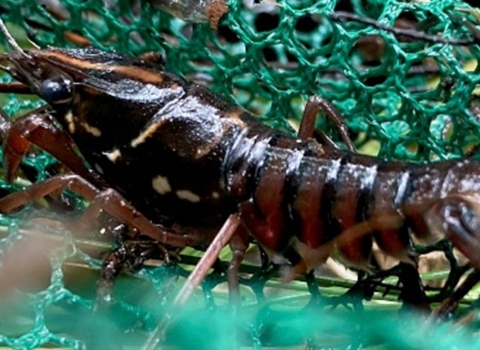WASHINGTON – The Biden-Harris administration today submitted to Congress the President’s budget for fiscal year 2022, including a proposed budget of $1.9 billion to fund the U.S. Fish and Wildlife Service’s principal resource management and conservation programs.
The budget proposal provides an increase of $331.3 million over the 2021 enacted level to support local conservation partnership programs, improve targeted conservation efforts, restore damaged lands, and promote locally led efforts of all kinds wherever communities wish to safeguard the lands and waters they know and love.
“The Interior Department plays an important role in the President’s plan to reinvest in the American people. From bolstering climate resiliency and increasing renewable energy, to supporting Tribal Nations and advancing environmental justice, President Biden’s budget will make much-needed investments in communities and projects that will advance our vision for a robust and equitable clean energy future,” said Secretary Deb Haaland.
“The Biden-Harris administration’s FY 2022 budget promotes bold initiatives that would transform our Nation and benefit citizens, wildlife and natural resources for generations to come,” said Service Principal Deputy Director Martha Williams. “The Service’s foundational priorities are solidly supported in this budget, which amplifies our work across landscapes and communities to protect and enhance America’s wild legacy.”
The proposed budget includes funding for Service initiatives including:
- Conservation Efforts, such as the America the Beautiful Initiative. The budget proposal for the Service is a total of $1.2 billion in funding to support President Biden’s efforts to increase conservation efforts to help address the climate crisis. The budget includes an increase of $240 million above the 2021 enacted level for programs and projects that will contribute to minimizing the negative effects of climate change climate change
Climate change includes both global warming driven by human-induced emissions of greenhouse gases and the resulting large-scale shifts in weather patterns. Though there have been previous periods of climatic change, since the mid-20th century humans have had an unprecedented impact on Earth's climate system and caused change on a global scale.
Learn more about climate change , bolster community resilience, and increase carbon sequestration. The budget also accelerates conservation efforts by supporting the America the Beautiful initiative, which aims to conserve 30 percent of U.S. land and water by 2030 through investments in partner programs, climate science and habitat adaptation and resilience. Additional funding will be used to support land management and restoration while creating job opportunities for Americans in the outdoors, including $584.4 million in funding for the operations and maintenance needs across 568 National Wildlife Refuges, an increase of $80.5 million above the 2021 level. - Advancing Science to Pursue Clean Energy and Climate Resiliency. The budget request includes $35.5 million, an increase of $15 million above 2021, for climate science that is necessary to guide expanded use of clean energy sources and improve resiliency to changing temperatures, water levels and weather patterns. Fish, wildlife and plant resources are integral to the nation’s natural landscapes and have played a major role in shaping America’s history, identity and character, but global and national conservation challenges such as wildfire, drought, invasive species invasive species
An invasive species is any plant or animal that has spread or been introduced into a new area where they are, or could, cause harm to the environment, economy, or human, animal, or plant health. Their unwelcome presence can destroy ecosystems and cost millions of dollars.
Learn more about invasive species , changing ocean conditions, and other impacts to the land, water and wildlife are magnified by a rapidly changing climate. The budget will expand the application of scientific research into the assessment and understanding of habitat requirements to enable economic development and inform conservation decisions in cooperation with the U.S. Geological Survey and other federal agencies, state, Tribal and local government partners and non-government organizations. - Deploying Clean Energy. The budget proposes $27.6 million for the Service, an increase of $13 million, for activities associated with clean energy development, including a program increase of $8 million for the Ecological Services Planning and Consultation program to support reviews and permitting of clean energy projects. Within the Migratory Bird Management Program, the budget includes a program increase of $5.1 million for clean energy project permitting to enable renewable resource development while protecting migratory birds, notably iconic bald and golden eagles. The Service supports the responsible development of clean energy sources to create new industries to support American workers while reducing emissions that contribute to climate change.
- Promoting Equity and Diversity. The budget request for the Service includes $1.4 million as part of a Department of the Interior-wide Diversity, Equity, Inclusion and Accessibility budget initiative to address high-priority needs in support of Executive Order 13985, Advancing Racial Equity and Support for Underserved Communities Through the Federal Government, and Executive Order 13988, Preventing and Combating Discrimination on the Basis of Gender Identity and Sexual Orientation.
For more information on the President’s FY 2022 Budget, please visit: https://www.whitehouse.gov/omb/budget/.



